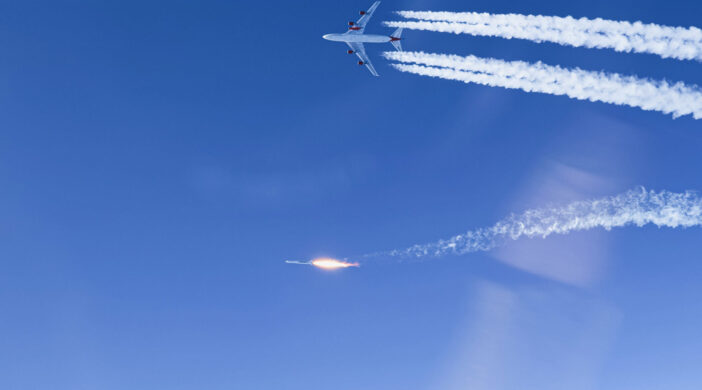Virgin Orbit has said that a dislodged fuel filter caused the failure of a LauncherOne flight with nine payloads aboard last month. According to the company’s update:
- The data is indicating that from the beginning of the second stage first burn, a fuel filter within the fuel feedline had been dislodged from its normal position.
- Additional data shows that the fuel pump that is downstream of the filter operated at a degraded efficiency level, resulting in the Newton 4 engine being starved for fuel. Performing in this anomalous manner resulted in the engine operating at a significantly higher than rated engine temperature.
- Components downstream and in the vicinity of the abnormally hot engine eventually malfunctioned, causing the second stage thrust to terminate prematurely.
- The early thrust termination ended the mission, and the second stage and its payloads fell back to Earth, landing in the approved safety corridor in the Atlantic Ocean.
Virgin Orbit’s first launch outside the United States originated from the Cornwall Newquay Airport in England. The company’s Cosmic Girl Boeing 747 air launched the rocket off the southern coast of Ireland. Nine satellites from the United Kingdom, United States and Poland were lost in the accident.
“The investigation is employing a detailed action plan to develop key analyses and tests to replicate flight conditions and to aid in determining the root cause or causes of the failure. All potentially credible scenarios, including the one described above are being investigated. Numerous tests are underway to support the investigation and help lead to definitive conclusions. Ultimately, all credible causes of the failure will be addressed prior to the next LauncherOne mission,” the company said.
Virgin Orbit’s next launch will originate from the Mojave Air and Space Port at Rutan Field in California. The company said a commercial customer has booked the flight, but it provided no details.
LauncherOne has record of four successes and two failures. The other failure came on the maiden flight with a dummy payload aboard in May 2020.

